Andrii Biletskyi: We are now facing the most difficult situation in almost three years of war

In recent months, journalists have not often been able to talk in detail with brigade commanders about the situation and problems at the front.
On the eve of this interview, Andrii Biletskyi, the commander of one of the top combat units in Ukraine, the Third Assault Brigade, was in Kyiv for several days on business. That's the only reason he agreed to record a conversation with us.
Biletskyi told Ukrainska Pravda about the fighting on various fronts, explained what to expect from the Russians in winter, and assessed the threats posed by the involvement of the North Korean army on Russia's side.
We also talked about mobilisation, Absence Without Leave, and problems with military training.
Here is a shortened version of the interview. If you are interested in the full version of the conversation, you can watch it in video format.
Andrii Biletskyi: We are now facing the most difficult situation in almost three years of war
First, let's talk about the situation at the front line. Taras Chmut, head of the Come Back Alive Foundation, said that we are currently experiencing the most difficult situation since the spring of 2022. What is your assessment?
This is indeed the most difficult situation in almost three years of war. To some extent, I would consider it even more difficult than in the spring of 2022.
There are many reasons for this: lack of personnel, insufficient training (pauses).
They keep talking about motivation and so on. Excuse me, but motivation is a matter of professionalism, level of training and trust in all the links that manage a soldier, sergeant, officer.
This is where motivation comes from, not just because a person is patriotic, for example. So the problem is insufficient training, motivation, and, to some extent, insufficient means.
People like to say things like: "We didn't receive enough material and technical assistance".
Let's be honest: the situation is no better for the Russians. All the stories about their ten or seven shells to one of ours are not true.
The Russians have a very problematic situation with weapons and military equipment - weapons, military equipment, armoured vehicles, ammunition, and the quality of ammunition.
However, they have several systemic advantages. One of them is the air component – Russian guided aerial bombs have drastically changed the situation on the ground.
And, of course, human resources play a significant role. The Russians are not advancing because of, let's say, concentrated artillery fire. And not through the massive use of armoured vehicles. It is due to an infinite amount of literally cannon fodder. I say cannon fodder, because the way they use it, it's not easy to call them soldiers.
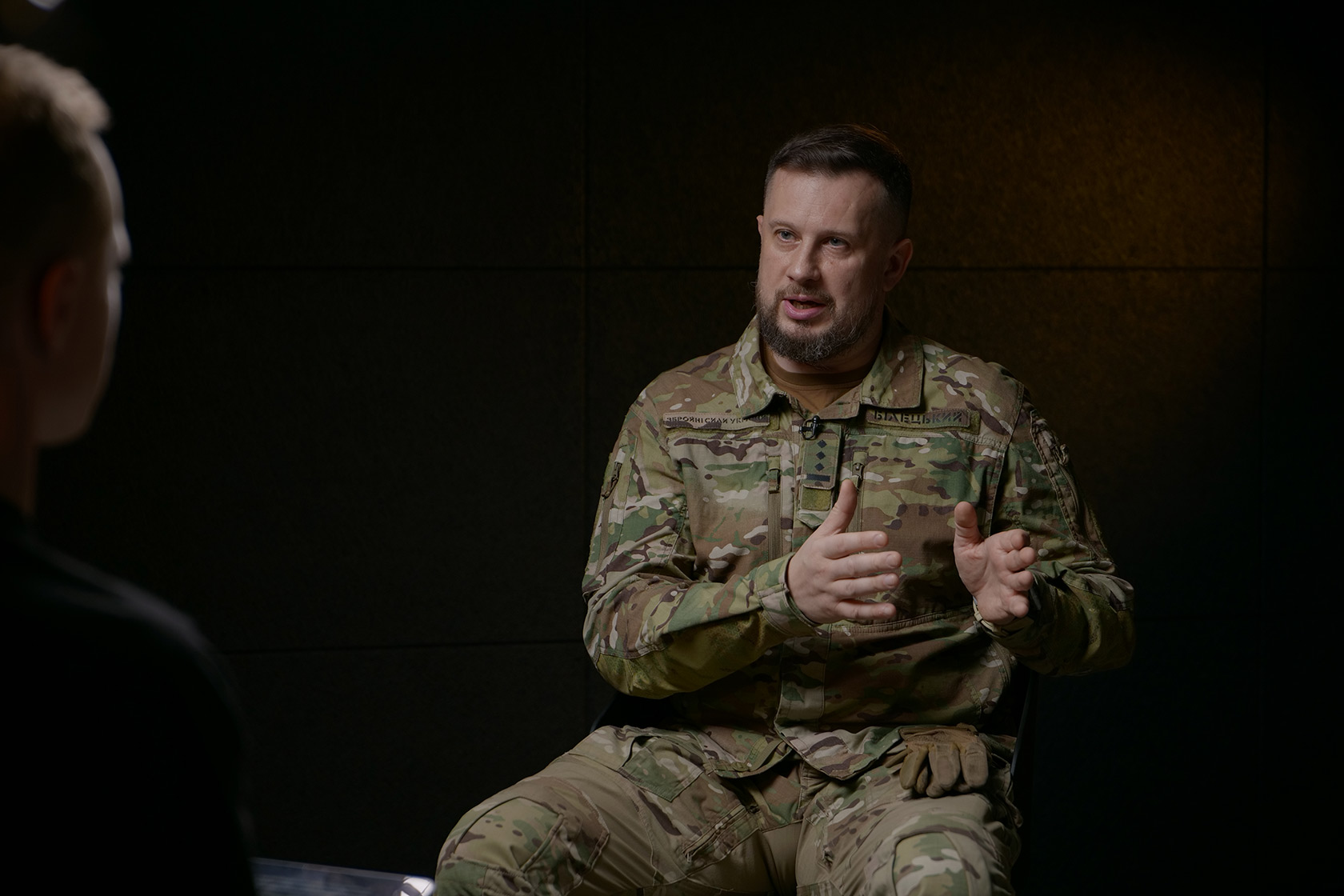
We are entering the winter period. How will winter affect the intensity of the fighting?
It will not affect it radically. The weather primarily affects the mobility of vehicles and armoured vehicles: tracked, wheeled, etc.
Adverse weather conditions reduce the possibilities of operations with the use of equipment.
As for the Russian infantrymen, they will continue to act the same way, working in small groups and showing no pity for their fellow soldiers.
Their tasks are shallow breakthroughs, not marches of 50 kilometres. To get out of their hole and occupy our hole 250 to 300 metres away, okay, a kilometre. He [a Russian soldier – ed.] will walk through snow, rain, mud.
For us, the impact of winter weather can be more negative. Due to the lack of personnel and the quality of training, our main means of destruction are drones.
A reconnaissance drone, a large reconnaissance wing, or an FPV are all very dependent on daylight hours. Yes, there are thermal types [with a thermal imager – UP], but there are clearly fewer of them.
The use of drones depends on the wind and air transparency: fog or no fog, rain or no rain, snow or no snow.
So I'm afraid that expectations that the Russians will slow down because of the winter are unjustified.
On the contrary, our defence may become more difficult because our main weapon will lose its effectiveness. Yes, it is harder for the Russian infantryman to move, but on the other hand, he uses weather conditions as a means of camouflage. So there are disadvantages and advantages for the infantry.
There is a lot of information in the media about the Zaporizhzhia front. Recently, a spokesperson for the Defence Forces of Ukraine’s South told Sky News that Russian troops could launch a ground offensive there. How do you assess the situation?
They have already launched assaults west of Velyka Novosilka.
Velyka Novosilka is a very important defence hub in Ukraine’s south. So far, they [the Russians – ed.] have had limited success, capturing Rivnopil and advancing partly towards Huliaipole.
From what I know from my brigadier friends, it looks like the enemy will try to advance.
The offensive near Velyka Novosilka helps the enemy to complete its primary operation - the occupation of Kurakhove.
Zaporizhzhia Oblast is an extremely dangerous front. The terrain is flat. If you look at the map, there are almost no large settlements.
And our communications, let's just say, are stretched from west to east. They can be cut. For us, this can be a really significant problem for the whole of Donbas.
As far as I know, over the past few weeks, we have been actively strengthening both the grouping [of forces – ed.] and the fortification efforts there, but this is not enough.
But I don't know the full composition of the enemy's group or the enemy's intentions, just like I don't know the composition of our group.
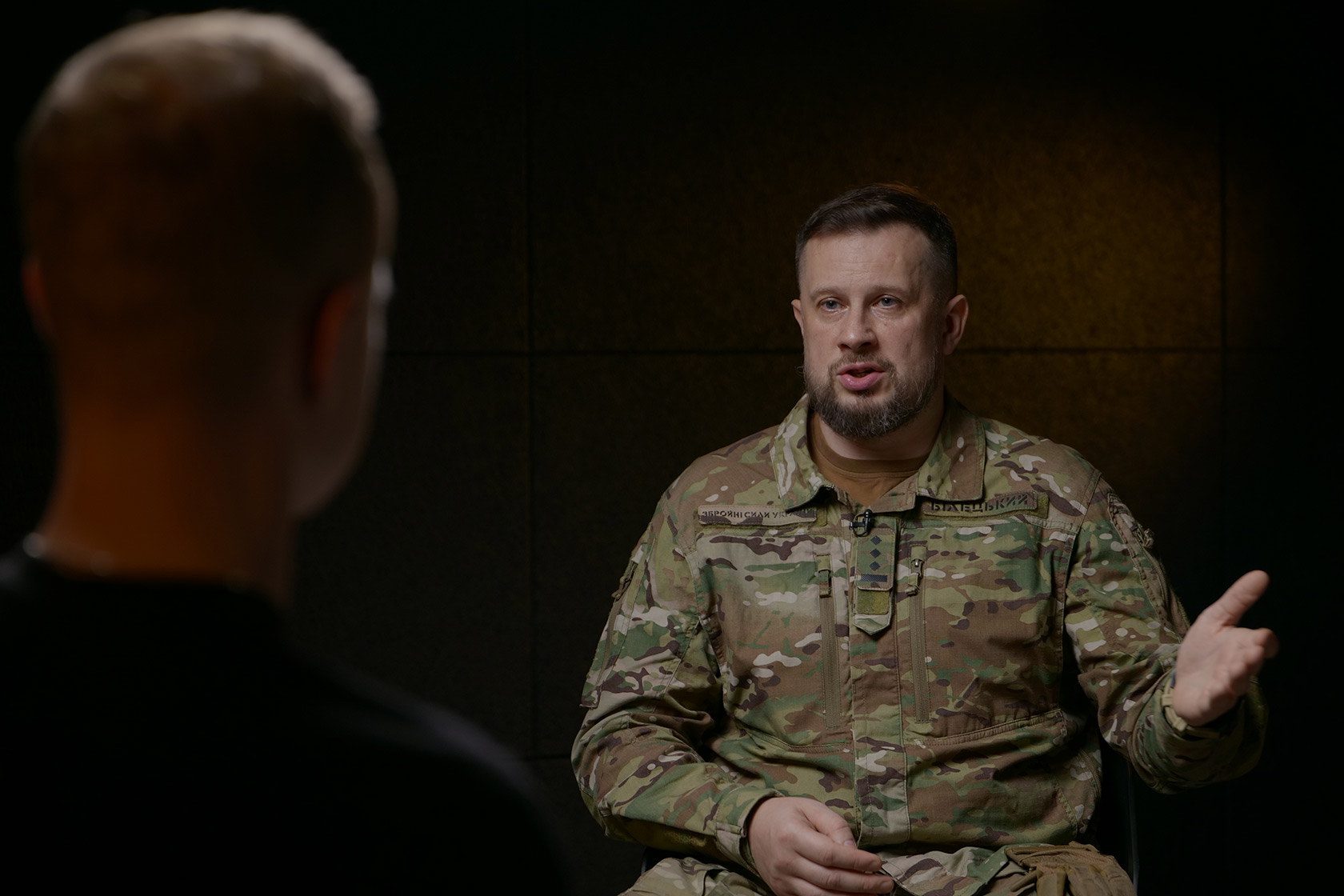
"The biggest problem from North Korea is their defence industrial base,
not their troops"
It is known that the North Korean army is fighting against us in Kursk Oblast. How do you assess the involvement of Koreans in the war? How dangerous is it?
I believe that even if 50,000 of them are involved, it will not radically change the situation on the battlefield.
Let me explain: we are using new high-precision and cheap munitions. An FPV drone can now cost as little as US$300.
The types of field fortifications and tactical techniques have changed, both in defence and offence. All this requires serious practice. Now two countries in the world have such experience – we and Russia.
North Korea is not a technologically advanced country.
For example, computer gaming is not widespread there, and it is unlikely that you can practice flying a drone in civilian life or buy one to fly for pleasure in North Korea.
I don't think they will be able to fight in today's realities.
Of course, it's Terra incognita for all of them, but I don't think people from the gulag are extremely motivated either.
Is it about money? I don't believe that salaries can motivate someone to die.
But they want to survive, so they will fight for their lives...
Actually, I think they will not fight so much as survive.
If we talk about North Korea, it seems to me that the influence of the North Korean defence industrial base on our war is of an order of magnitude greater than anything that Korea can put on the battlefield.
What the North Koreans have supplied to the Russians is, give or take, the same amount of artillery ammunition that all NATO countries have given us in almost three years. This is a problem.
Yes, I know it is bad ammunition.
And yes, the Russians immediately identify that the artillery ammunition is Korean – it has a different coefficient. They understand that it is much less likely to hit the target, but it is still possible.
Without it, they would be in a situation of extreme shell famine right now. The ballistic missiles flying at Kyiv, Odesa or Mykolaiv are North Korean.
The Korean defence industrial base is a problem for us. And North Korean troops are unlikely to be a significant problem.
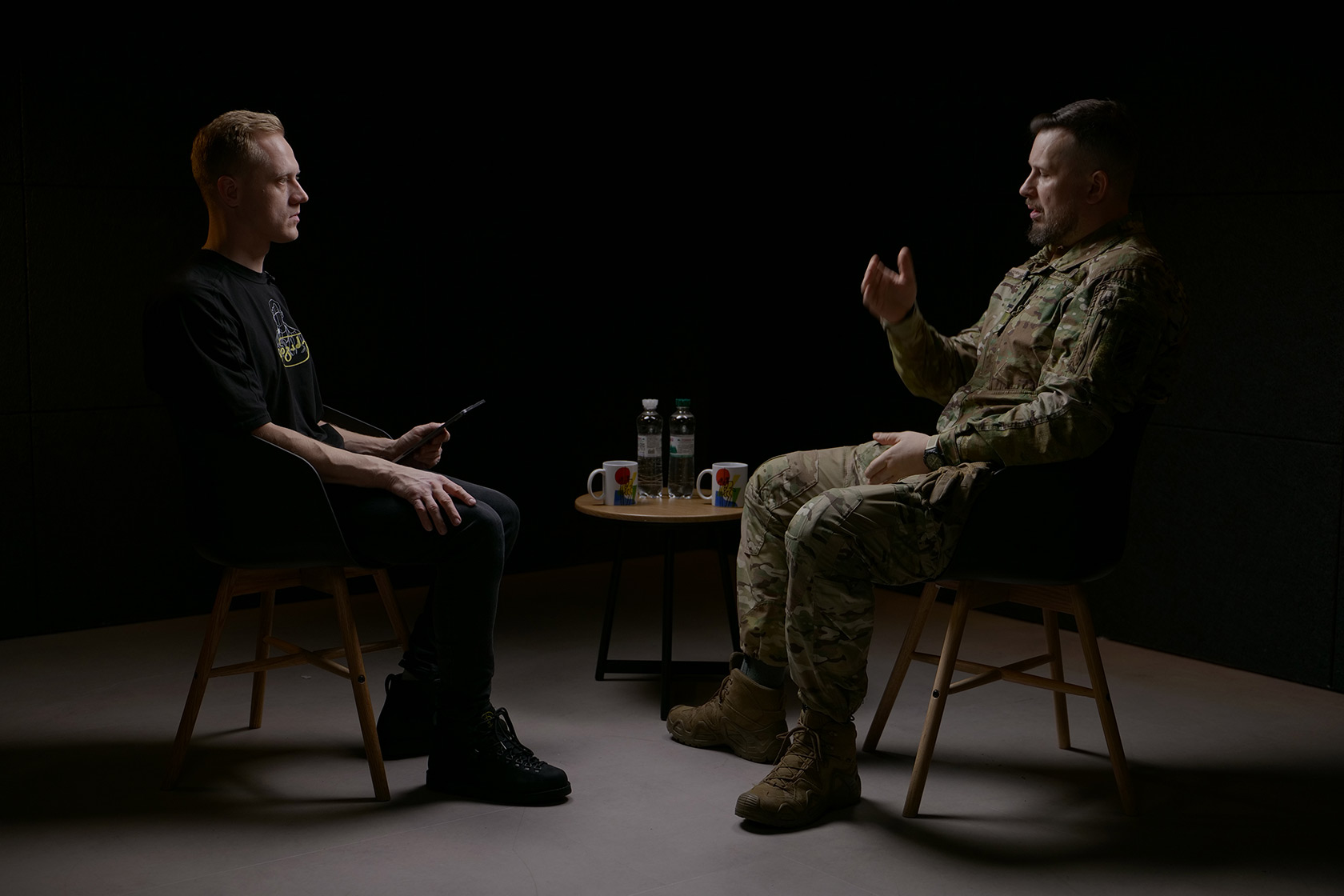
"Motivation is not about words, it's about actions"
We started by talking about motivation earlier. I understand that most people who joined the 3rd Separate Assault Brigade are volunteer soldiers. But this is the third year of a full-scale Russian invasion of Ukraine, how do you maintain the morale of the soldiers?
The moral and psychological state of the army is a set of specific actions.
A simple example: if a person is kicked out of work, has huge problems in the family, health problems, financial problems, or degenerate neighbours who fight on the stairs, just going to a psychologist will not help in such a case.
Because your problems are not caused by depression but by objective reasons: financial, family and health issues.
I talk to people before operations, we often gather infantry together, tank drivers and commanders communicate with us – this is our approach.
But I am far from thinking that words can replace actions.
A soldier needs to see that he has combat commanders, that there is a plan, and that his company commander was not just given a seven-word combat order to occupy a certain point by a certain date and given the coordinates.
A person must understand that for him to complete the task, a battalion or even a brigade also has to think. He sees that everything is being provided, he sees that he has an excellent level of medical care.
During the cold season, vitamins are needed in a person’s diet. Boilers are needed in temporary encampments.
So we get moving, and in the first few days, the entire maintenance battalion is engaged in installing boilers because there are so many requests. It all matters.
And you shouldn't think that these people are materialistic, Why shouldn’t they be?
This is the patriotism of people who provide material supplies, invest in them, and work as a team.
Of course, you can make the right film, perform properly, and create a structure within the army that will improve morale.
This should also be done. Fair awarding of orders and medals also has a powerful impact. But we need a comprehensive approach.
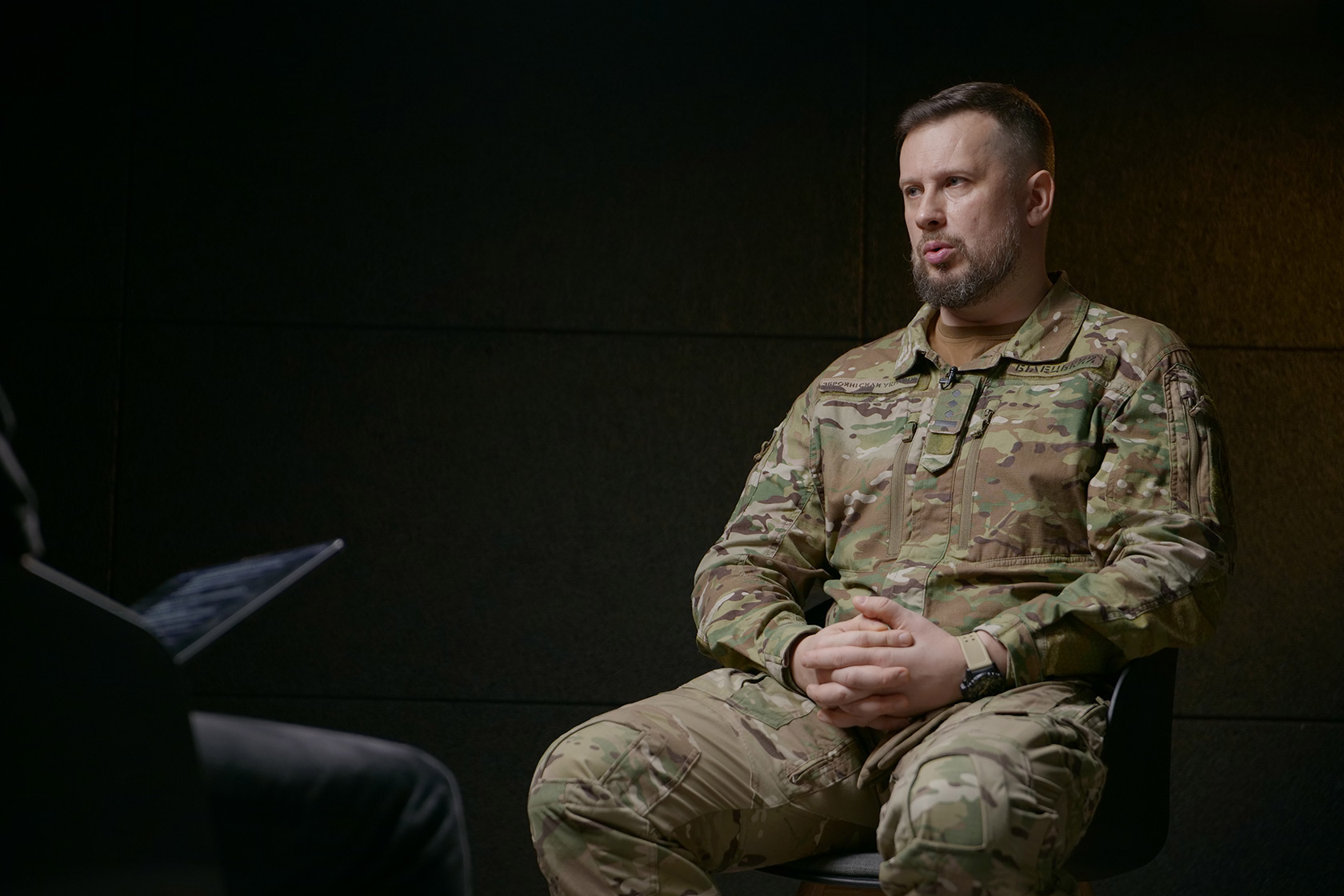
I want to talk about mobilisation. What is wrong with mobilisation in Ukraine?
I am not very much engaged in mobilisation issues. And we have a small percentage of mobilised personnel [in our brigade].
We do not receive mobilised personnel – we either send people to the enlistment offices who want to mobilise immediately for the 3rd Separate Assault Brigade, and this is the majority, or sometimes we are given the opportunity to select them.
We select according to a simple principle – we say: "Men, we have no other vacancies than infantry because this is an Assault Brigade. Those who want to join the assault troops, take a step forward." There aren't many of them, but there are such people every time.
But, once again, I am not very actively engaged in the mobilisation process, although we have all seen some videos that are not very pleasant for anyone.
[There are instances of videos posted online which depict Ukrainian military recruitment personnel using harsh and coercive mobilisation tactics – ed.]
You see, I'm bringing everything to the same point – the issue is not the actions of the enlistment offices. Maybe they're сrossing the line. But the key problem is distrust.
Perhaps some of my colleagues in the military field will be offended by my words, but it's no secret: we have a million people in the army, and everyone has someone in the army.
Accordingly, if people understand that they will end up in a сombat training centre where they will not be engaged in combat training, where the number of rounds fired is a third, and sometimes less than the Soviet standard for a young soldier’s training, where they understand that then they will get the same incompetent sergeant who was simply pointed at and told he would be a sergeant, and this person will be his master over life and death – then this is not very motivating.
A person is primarily afraid of the unknown. When you realise that you have no experience on the battlefield, that you know nothing about it. Perhaps in two months they will tell you and explain everything, but you still have to go through those two months, and it's scary.
Everyone is scared – a super professional and every soldier. There are no people who are not afraid. But everyone is scared in different ways.
However, it is one thing when a person understands what will happen and what they need to do to complete the task and survive on the battlefield. And it's another thing when a person is simply afraid.
If you sent me now to the Institute of Quantum Physics, I would feel insecure and bad, although my life there is not in danger. Because I have nothing to do with it, and I don't understand it.
How can we change this?
The answer is simple - teach. There is no other way. People become professionals only when they are taught.
Some have talent, while others have less. But anyone can be trained to be a solid enough average, competent enough to perform basic infantry tasks.
The issue of junior officer training needs to be solved urgently, and the approach to basic military training should be changed.
In 2015, I realised that you could not get far with an easy approach. There is initiative, and people have inner pride, physical abilities, and teamwork. But this is not professionalism.
Our unit was trained by Georgian officers who went through the war in Georgia and had held senior positions. And NATO officers, both Americans and Canadians. We created the Colonel Yevhen Konovalets military school. It still exists today.
I was approached at that time by the сommander of the Ground Forces and the commander of the Khortytsia Operational Strategic Group of Forces, now Commander-in-Chief General Syrskyi, who said: "We must create it." And we have done everything possible to ensure that the army has this Colonel Yevhen Konovalets military school.
I am convinced that the best soldiers, including those mobilised from training camps throughout the country, graduate from this school now.
Can this be scaled up? Yes, it can. In 6 months, this could be scaled up to a sufficient number of instructors to train 25,000-30,000 mobilised soldiers and another 5,000 sergeants per month.
These are flaws in the system. There are many problems, it's true. However, the main task is to increase the army's efficiency. First of all, you need to make a proper tool.
Let's put it this way: the army is a tool. You can't have a bad, unsharpened sword. You have to make it rust-free and sharpen it.
When people talk about great commanders, everyone immediately thinks of Napoleon.
At the time, Napoleon had a new type of army, a revolutionary one. He had the best military tool [army] on the planet. This tool enabled him to realise his outstanding qualities as a military leader and commander. With a bad army, he could do nothing.
They had Jean-Baptiste Jourdan and Lazare Carnot, who operated in corps divisional columns, used spread-out tactics, created an artillery and cavalry reserve, a new system of army combat training, and a new recruitment system. In other words, they created a new army.
In other words, it doesn't matter who the brigadier, commander, chief of the general staff, and so on are, the main thing is what they are managing because even a talented one won't do anything with a bad army.
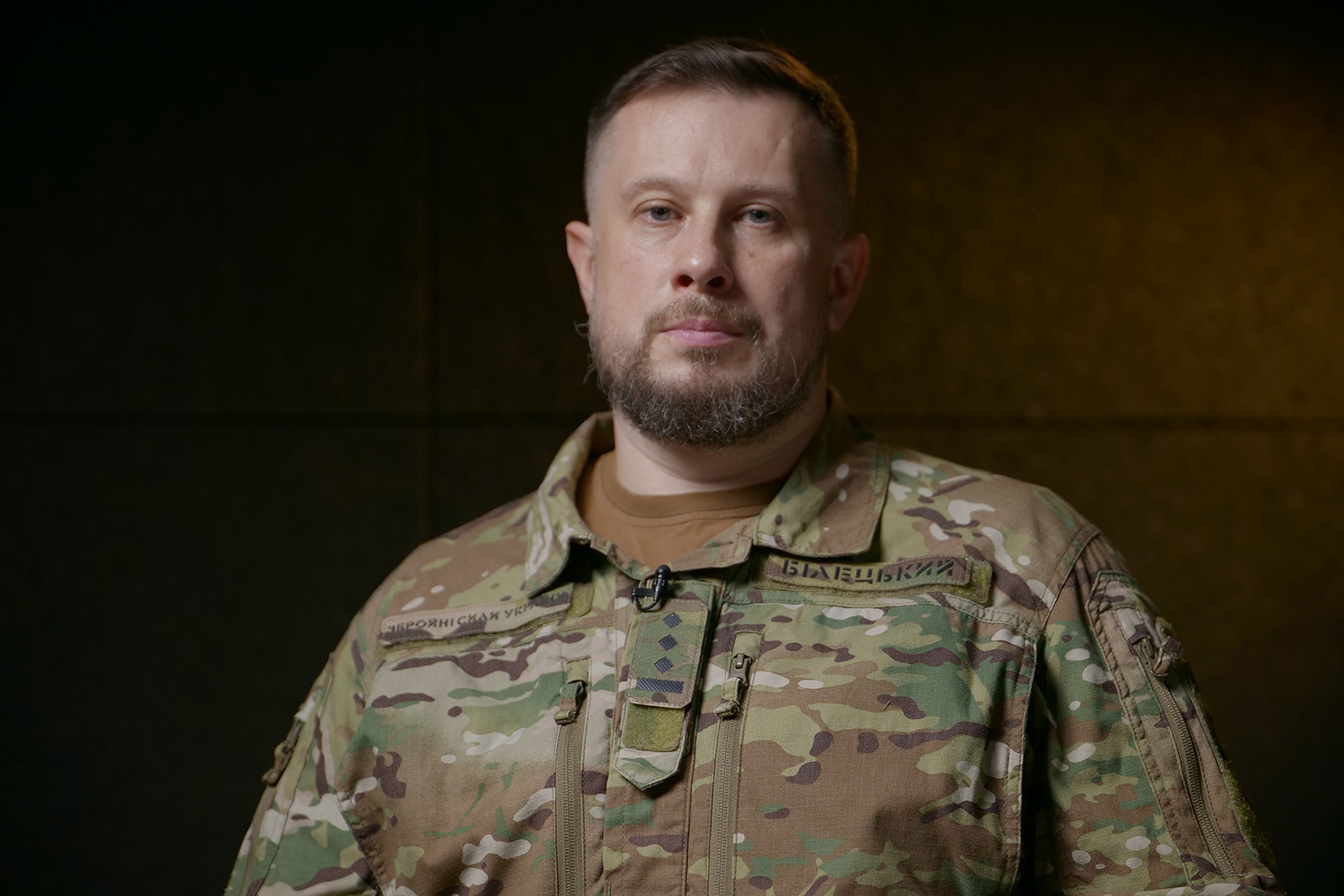
How can we solve the critical shortage of people?
The solution is to ensure that those people who join the army every month are trained many times better than they are now.
This means we will have fewer people absent without leave, fewer will be killed or injured, and Russian losses will increase.
Then the next month the critical shortage will be a little less and even less after that. This way, it [the army] will increase instead of decreasing indefinitely.
We need to dramatically increase the army's efficiency. Military efficiency primarily means high-quality combat training. We already have professional exercises to provide this training. They need to be scaled up.
How? They need people to train not hundreds, but thousands of instructors.
Currently, 80% of the people in training centres have not been to war. And the question arises: what can they teach?
We need to gather 3,000-4,000 troops. Yes, it will be painful, but not that much. Take good sergeants and old soldiers: maybe they’ve suffered injuries, this and that – you must select carefully. It won't be easy if you take a shortcut, taking just four months. The best way is that they become high-quality instructors in six months and complete their trial course.
After that, you can roughly calculate that one person should train ten cadets. That is, 4,000 can train 40,000 at the same time. And this is a completely different quality of battlefield-ready people.
Finally, what should the official conversation with society about the war be like?
Honestly, it's obvious. For a short period of time, you can engage, as before, in jingoistic propaganda.
Over time, the more positive reports there are, the greater the distrust will be because they are at odds with what people hear from relatives and friends who take part in military operations.
I also communicate with different people, and I am surprised to see that some perceive the situation as being worse than it is because they distrust official channels.
This is also a dangerous story. So talk to people honestly, like adults.
I think this is the best way to connect with society.
Roman Kravets, Ukrainska Pravda
Translation: Yuliia Kravchenko and Yelyzaveta Khodatska
Editing: Susan McDonald
